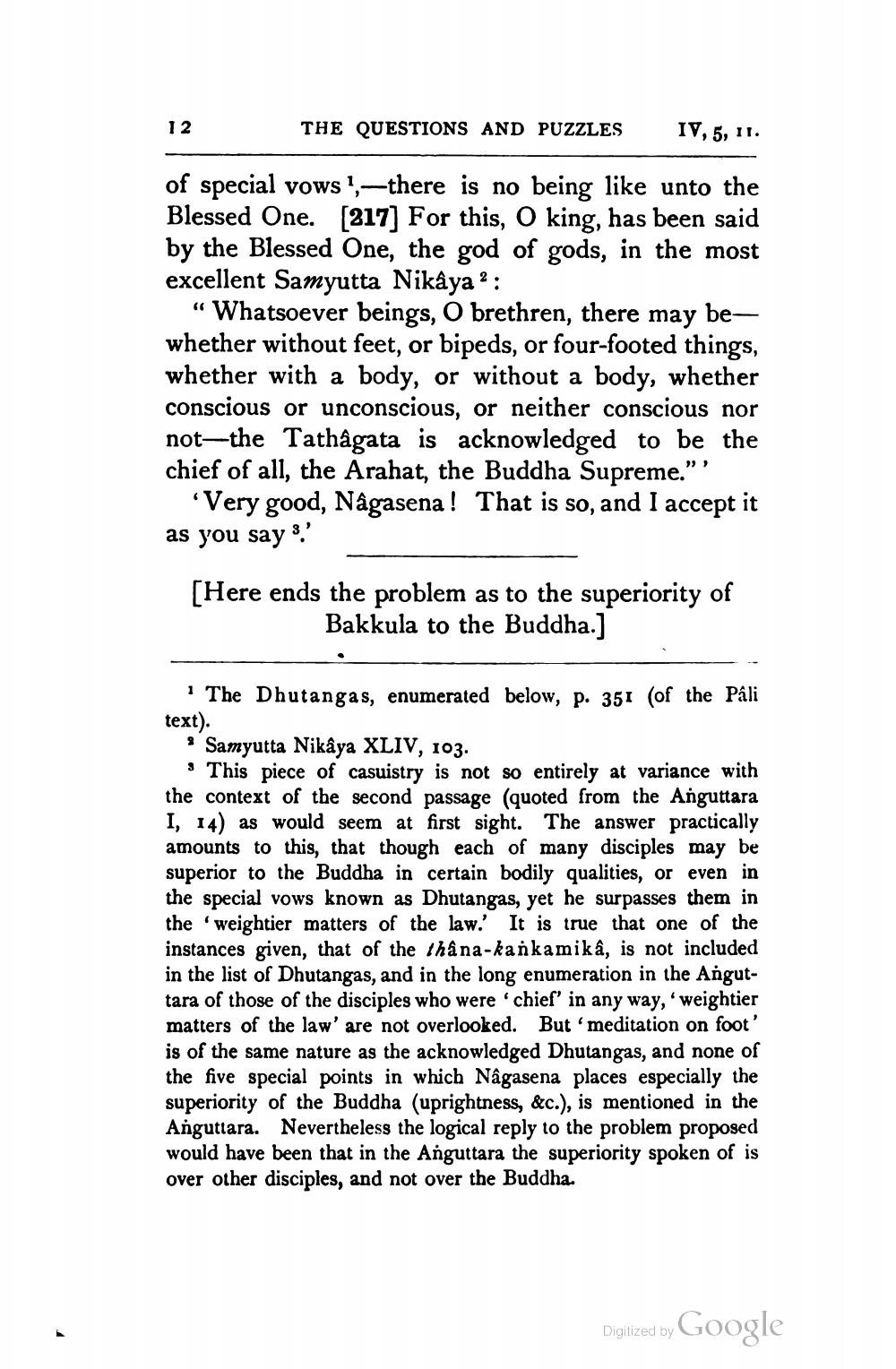________________
THE QUESTIONS AND PUZZLES
IV, 5, 11.
of special vows ',-there is no being like unto the Blessed One. [217] For this, O king, has been said by the Blessed One, the god of gods, in the most excellent Samyutta Nikâya 2 :
12
"Whatsoever beings, O brethren, there may be― whether without feet, or bipeds, or four-footed things, whether with a body, or without a body, whether conscious or unconscious, or neither conscious nor not-the Tathagata is acknowledged to be the chief of all, the Arahat, the Buddha Supreme."
"
'Very good, Nâgasena! That is so, and I accept it as you say 3.'
[Here ends the problem as to the superiority of Bakkula to the Buddha.]
1 The Dhutangas, enumerated below, p. 351 (of the Pâli text).
9
Samyutta Nikâya XLIV, xo3.
This piece of casuistry is not so entirely at variance with the context of the second passage (quoted from the Anguttara I, 14) as would seem at first sight. The answer practically amounts to this, that though each of many disciples may be superior to the Buddha in certain bodily qualities, or even in the special vows known as Dhutangas, yet he surpasses them in the weightier matters of the law.' It is true that one of the instances given, that of the thâna-kankamikâ, is not included in the list of Dhutangas, and in the long enumeration in the Anguttara of those of the disciples who were 'chief' in any way, 'weightier matters of the law' are not overlooked. But 'meditation on foot' is of the same nature as the acknowledged Dhutangas, and none of the five special points in which Nâgasena places especially the superiority of the Buddha (uprightness, &c.), is mentioned in the Anguttara. Nevertheless the logical reply to the problem proposed would have been that in the Anguttara the superiority spoken of is over other disciples, and not over the Buddha.
Google
Digitized by




